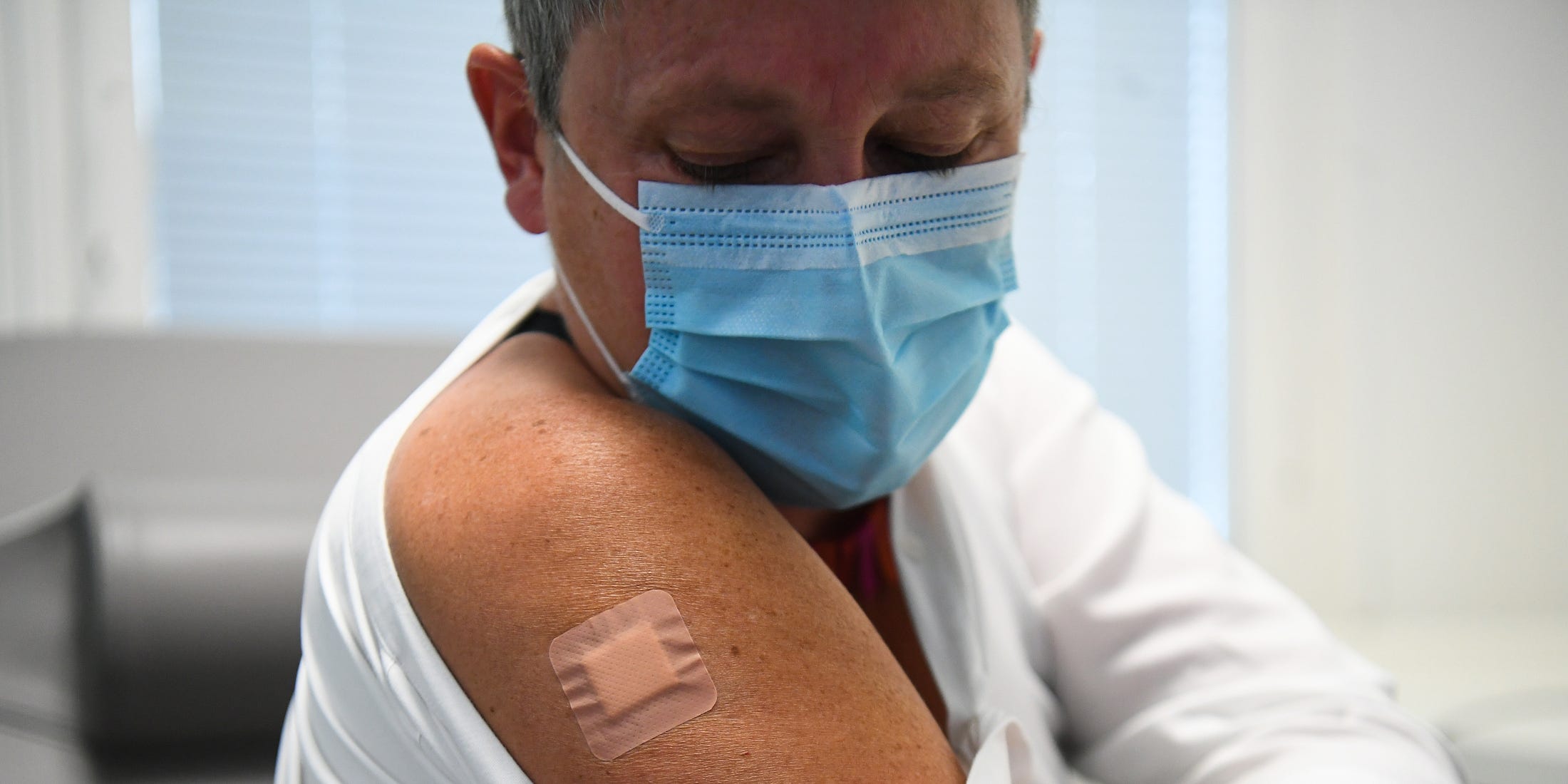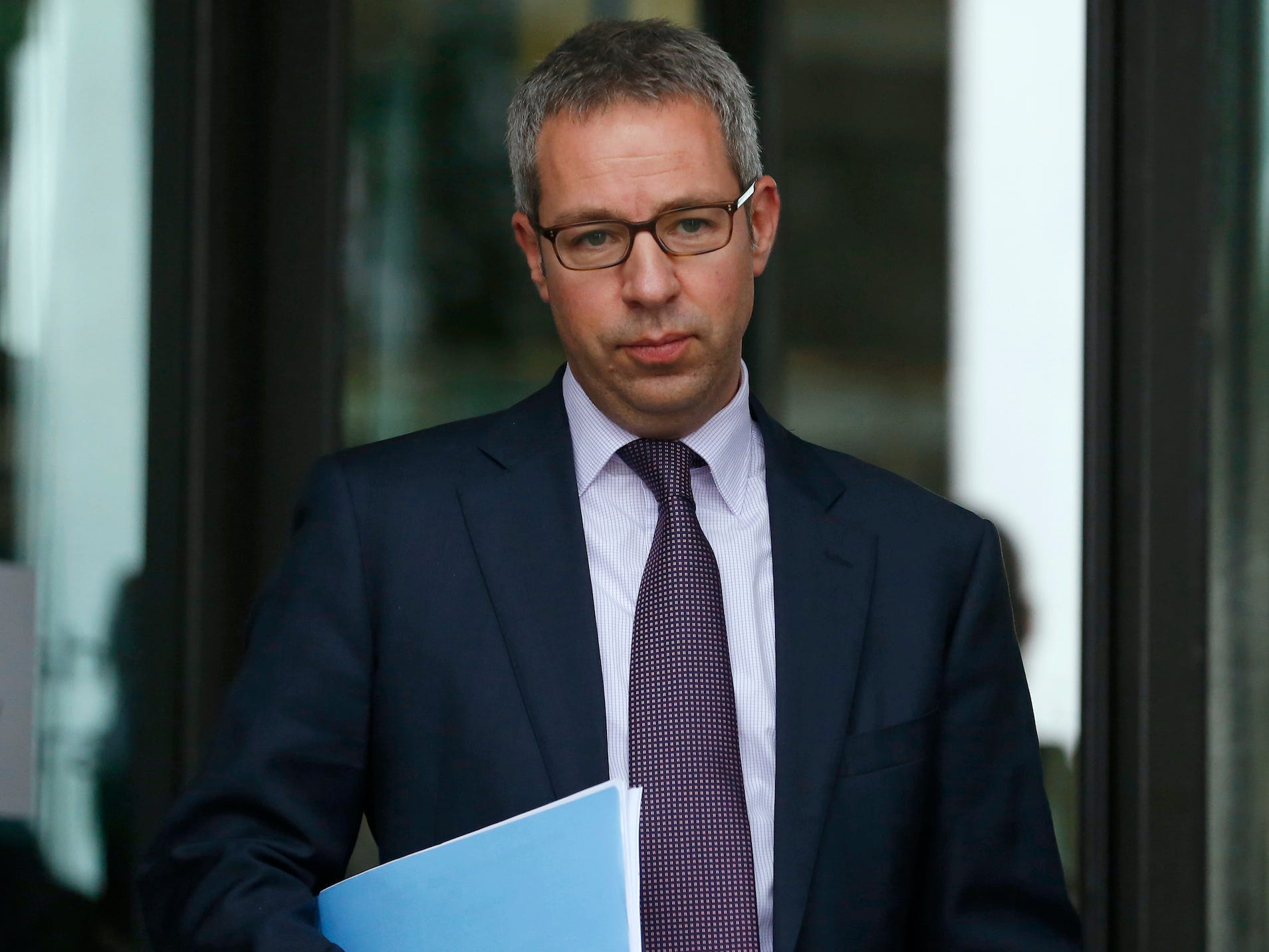
Kirsty O'Connor/PA Images via Getty Images
- Oxford University and AstraZeneca announced on Monday that their vaccine works — but the story soon got messy.
- AstraZeneca’s Mene Pangalos said a group of study participants received a lower dose by accident, prompting a wave of criticism from experts.
- There are legitimate reasons to criticise the vaccine, questioning details of the development process and its precise effectiveness.
- But it is important not to overhype the problems — the vaccine has been proved safe and could become a powerful weapon against COVID-19.
- Visit Business Insider’s homepage for more stories.
AstraZeneca and Oxford University’s high-profile announcement on Monday of a working vaccine has soured in the days that followed.
After promising headline results, it became clear that the development process had been less than perfect, with some participants mistakenly given a smaller dose, which appeared to actually make it more effective.
On Thursday, after a wave of criticism, its CEO admitted there were problems in the process and pledged to run another study. It is a markedly less smooth launch than rival vaccines from Pfizer and Moderna.
The issues prompted critical columns and a wave of attacks on social media. But it is important to take the news in context.
What AstraZeneca is rightly being criticized for
- AstraZeneca and Oxford made a mistake — the lower doses were given by accident and the trial was never meant to measure what that achieved, making it harder to know how good the vaccine truly is at that dose.
- They have not published much detail on their trials — less than Pfizer or Moderna. This means skeptics and critics have more ammunition. (No vaccine-maker has published a peer-reviewed journal paper, which is the gold standard.)
- AstraZeneca’s data is more complicated from the start. Its results are from three separate trials in the UK, Brazil and South Africa, rather than from one big study like Moderna and Pfizer. They had different start dates and used different placebos.
- The company took several days to respond and commit to undergo another study.

Mene Pangalos, AstraZeneca's Executive Vice President of BioPharmaceuticals Research and Development.
Reuters
Why not to give up hope
- Scientists always criticise each other’s work — it’s how processes are refined and progress happens. For brand new problems like the COVID-19 coronavirus this is especially so.
- Scrutiny like this is part of the process, and needs to be intense because so much is at stake.
- It is easy to overhype criticisms, and feed unfounded fears of vaccinations.
- The results so far suggest that the vaccine works against COVID-19, even if it may take longer to work out exactly how well.
- The vaccine has significant advantages over its rivals — it is cheaper and is much easier to store and transport — which could ultimately help it reach patients that the other vaccines can’t.
- Mistakes are not always a disaster — for instance penicillin was discovered accidentally.
When you’re promising a solution to a serious pandemic that’s caused 1.4 million deaths across the world, it’s inevitable that the stakes are high. There’s legitimate reasons to speak out, but also a balance to strike.

